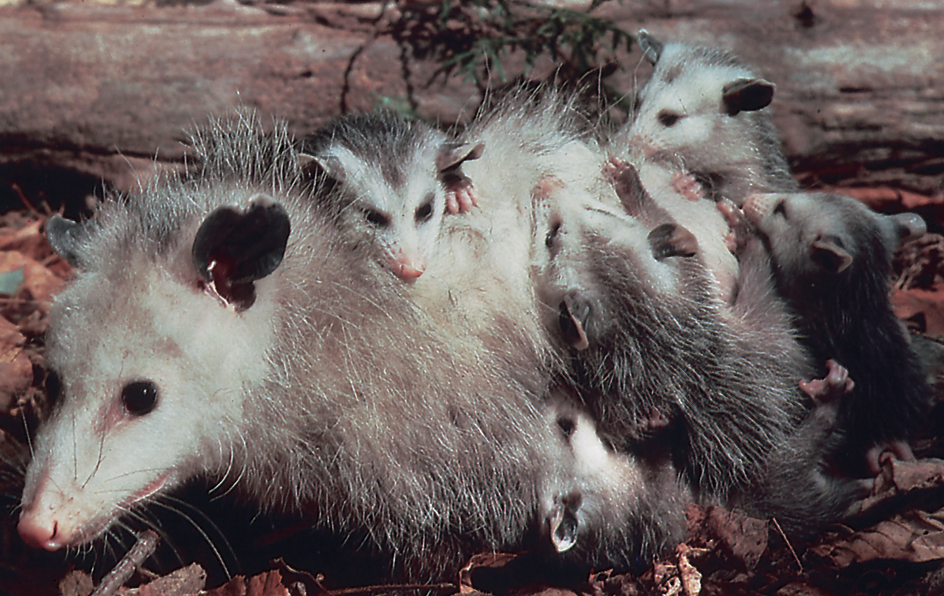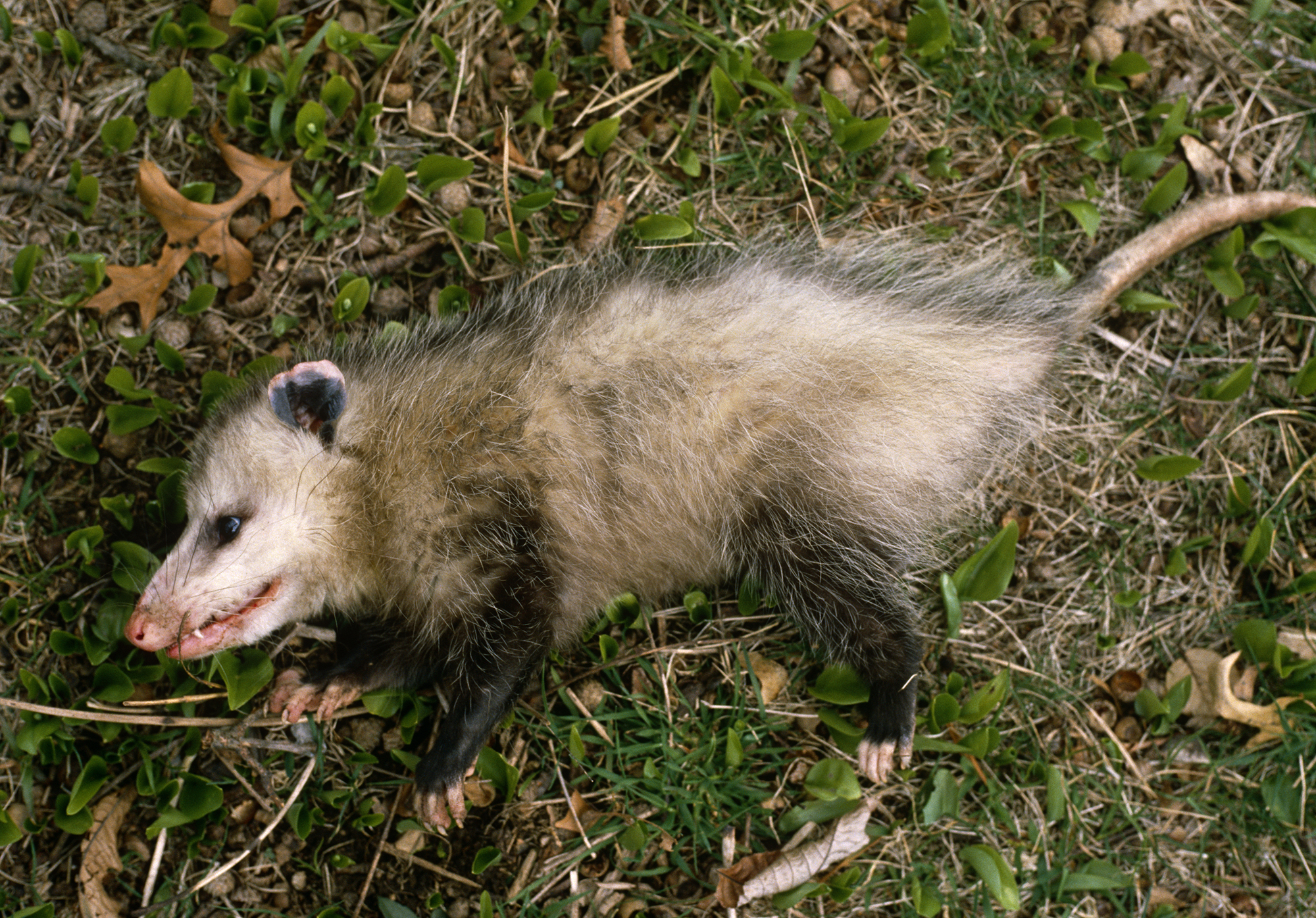Opossum, << uh POS uhm, >> is a small furry mammal of the Americas. Dozens of species (kinds) of opossum exist. They are marsupials, mammals who bear extremely undeveloped young. The female opossum carries the young in a pouch on her abdomen. Opossums are the only marsupials native to North America. They live from Ontario in Canada southward into South America. Both opossums and the possums of Australia and New Guinea are marsupials, but they are not closely related.

Most opossums live in Central and South America. Small, tree-dwelling murine opossums resemble mice. Woolly opossums have thick, soft fur. The yapok, or water opossum, is the only marsupial adapted for living in water. Its webbed feet help make it a good swimmer.
The Virginia opossum, also called the common opossum or North American opossum, is the only species found north of Mexico. This opossum grows about as big as a house cat. It has rough grayish-white hair, a long snout, dark eyes, and big hairless ears. A long, nearly hairless tail helps the animal grasp objects and stabilize itself while climbing. The Virginia opossum has 50 teeth, more than any other North American mammal. Its teeth and claws are sharp. Its tracks are easy to recognize due to the animal’s long, widely separated toes.
Opossums are born in groups of up to 25. At birth, an opossum is about as big as a kidney bean. The newborn attaches itself to one of its mother’s nipples, sometimes contained in her pouch. Nourished by its mother’s milk, the young opossum stays there for about two months. After leaving the nipple, the young stay near the mother for several more weeks. When they can take care of themselves, the young go off on their own. In the wild, opossums rarely survive more than two years.
Opossums are nocturnal, or most active at night. They eat almost any kind of plant or animal food. When in danger, opossums sometimes enter a temporary shocklike state and appear to be dead. 
